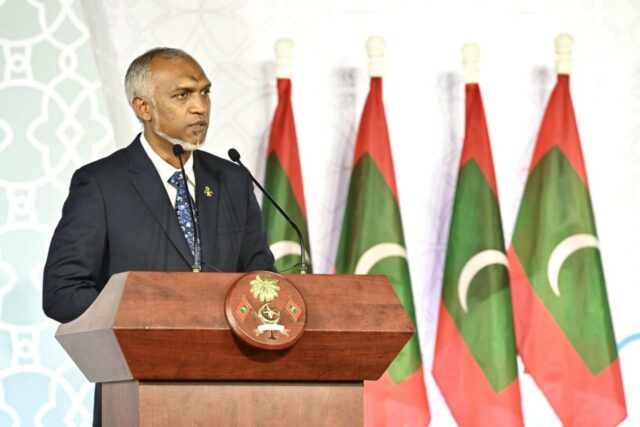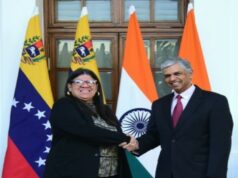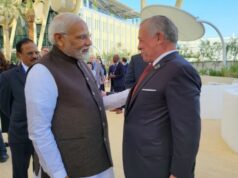
A controversial media bill that was passed by the Maldivian Parliament, has been ratified by President Mohamed Muizzu, and a senior diplomat from Male told journalists in Delhi that “By unifying oversight under one independent body, the law creates clarity, consistency and stronger protections for journalists and the public.”
Ahmed Shiaan, who is Secretary (Multilateral) in the Maldivian Foreign Ministry, claimed the new media body replaces an “outdated and fragmented system where two separate institutions (the Maldives Media Council and the Broadcasting Commission) often overlapped or conflicted in their roles.”
The bill – Maldives Media and Broadcasting Regulation Bill – was passed by the People’s Majlis on September 16 even as journalists there voiced their concern, saying that the law would muzzle them.
The new law, according to various reports, gives sweeping powers to the media commission, allowing fines against reporters and outlets and permits the authorities to suspend or even shut down media organisations.
Shiaan denies that is the case, claiming that “The commission is independent of the executive. A majority of its members (four out of seven) are elected directly by the media sector, with the remaining three appointed by parliament,” he said, adding that the President and Government will have no role in appointments or removals.
But reports from Male quoted Maldivian journalists as saying that parliament has the power to remove the members of the commission and the clauses on protecting “social values” and “personal honour” could be used to silence the media.
Former foreign minister Abdulla Shahid added his voice to the clamour against the bill. In a post on X, he wrote that “The ratification of the Media Control Bill by President Muizzu is a blatant attempt to stifle free speech and muzzle the media. However, the people’s voices will not be silenced. The will of the people always prevails, and dictatorial regimes ultimately fail to suppress dissent.”
Shiaan insists that the act provides “A modern framework that both enhances press freedom and strengthens public confidence in journalism. It protects media independence, reinforces professional standards, and ensures the public’s right to accurate, reliable information, making the Maldives’ media landscape stronger, more independent and more accountable.”
The international outcry against the act is growing. The International Federation of Journalists described the media law as “draconian”, and accused the Muizzu government of seeking to muzzle the press.
Reporters Without Borders said Maldives had fallen two places in the 2025 World Press Freedom Index rankings, now figuring at 104th out of 180 countries. It warned that the media environment on the island was worsening.




